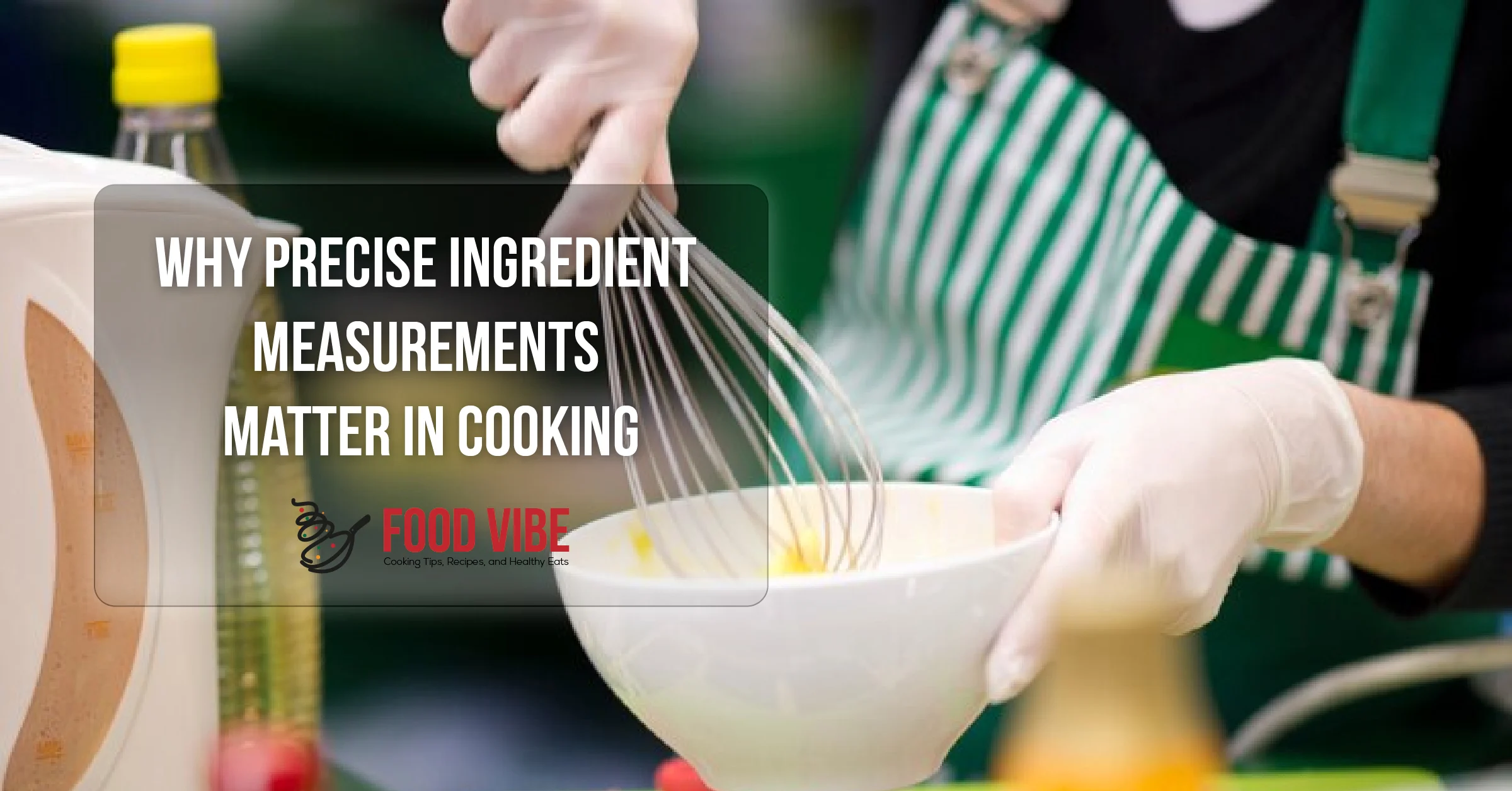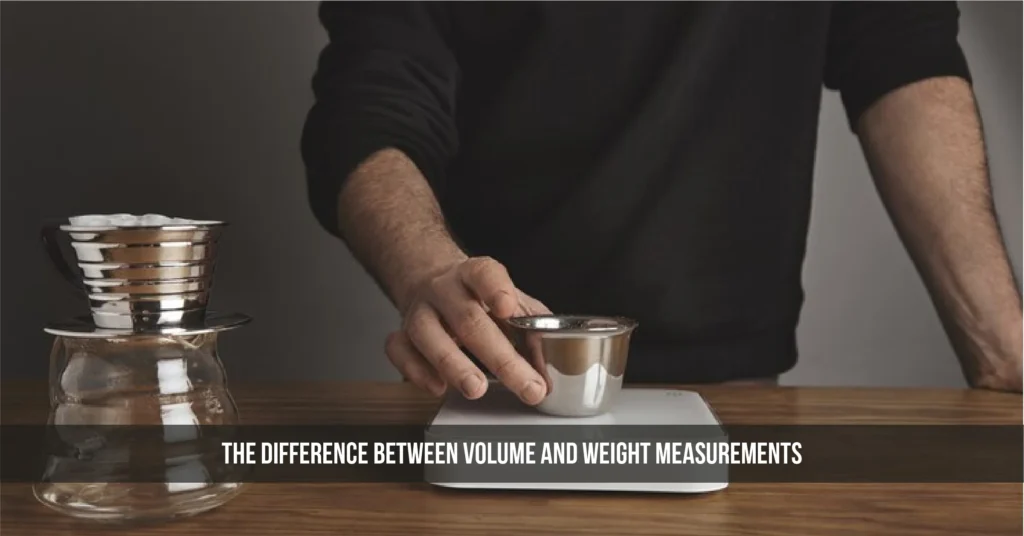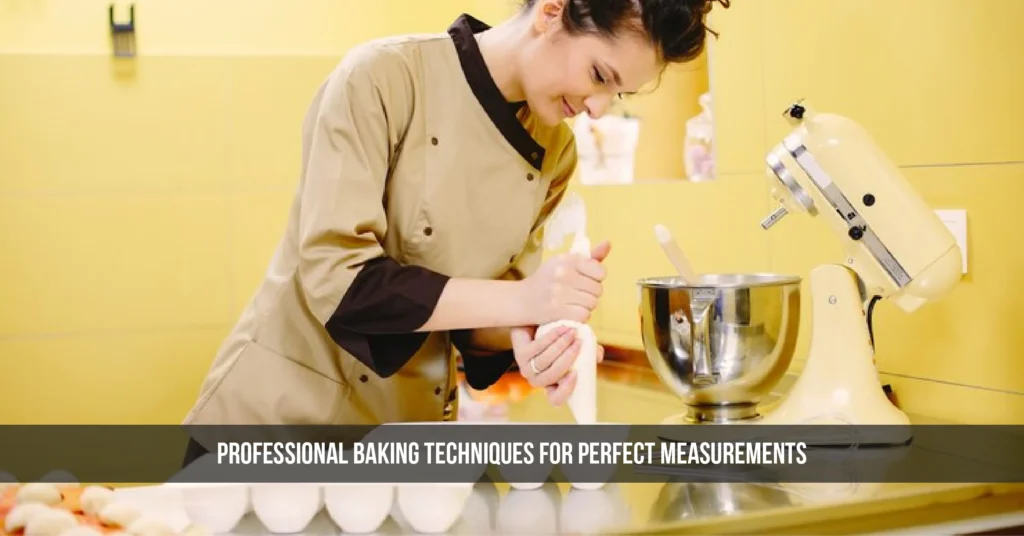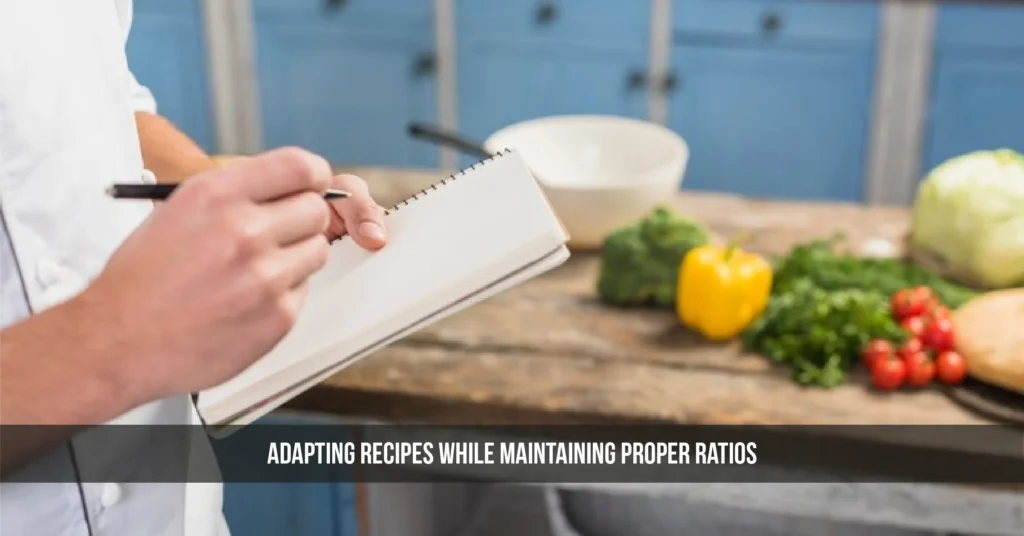
Why Precise Ingredient Measurements Matter in Cooking
When cooking, you want your dishes to turn out just right. Precise ingredient measurements are key to getting consistent results. You might ask, why is it important to weigh ingredients when cooking? The answer is simple: it improves your cooking accuracy.
By weighing ingredients, you can ensure your recipes work as they should. This is important for both new and experienced cooks. Weighing ingredients brings many benefits, making your cooking better. It helps you achieve the best results in your dishes.
Table of Contents
Understanding the Science Behind Cooking Measurements
Measuring ingredients for cooking is key. It’s important to get it right to achieve the best results. You need to know about chemical reactions, ratios, and how temperature changes affect cooking.
Chemical reactions, like the Maillard reaction, happen when ingredients meet heat. The right ratios of ingredients are also crucial. For example, changing the flour-to-sugar ratio can alter a cake’s texture and taste. Understanding these concepts helps you make accurate measurements and get consistent results.
Chemical Reactions in Cooking
Chemical reactions in cooking create new compounds. These changes affect a dish’s flavor, texture, and smell. Accurate measurements are vital to trigger the right reactions. This ensures your dish tastes great and looks good too.
The Role of Ratios in Recipe Success
Ratios are key to a recipe’s success. They balance flavors and textures. The right ratios help create dishes that are well-balanced and delicious.
How Temperature Affects Measurements
Temperature changes can alter ingredient density. This affects measurements. When cooking, consider the ingredient temperatures. This ensures your measurements are accurate and your dish turns out right.
| Ingredient | Temperature | Density |
|---|---|---|
| Flour | Room temperature | 1.2 g/ml |
| Sugar | Room temperature | 0.8 g/ml |
| Butter | Melted | 0.9 g/ml |
Why Is It Important to Weigh Ingredients When Cooking?
Weighing ingredients is key in cooking. It ensures you get the right amount. Using a kitchen scale lets you measure by weight, not volume. This is important because volume can change due to how ingredients are packed or the air’s humidity.
Investing in a reliable kitchen scale is a great cooking tip. It helps you cook better and improves your skills. With a scale, you can measure ingredients accurately, convert units easily, and make sure your dishes are perfect.
- Improved accuracy and precision in measurements
- Increased consistency in cooking results
- Easier conversion between units and ingredients
- Reduced waste and saved time in the kitchen
Adding a kitchen scale to your cooking routine can elevate your dishes. It’s beneficial for both experienced chefs and beginners. Following cooking tips for accurate measurements can significantly improve your cooking’s quality and consistency.
The Difference Between Volume and Weight Measurements
Measuring ingredients can be done in two main ways: volume and weight. Knowing the difference is key for precise cooking. Volume measurements, like cups and spoons, can be off because ingredients have different densities. Weight measurements, however, are more accurate and consistent, making kitchen scales very useful.
A kitchen scale is vital for accurate measurements. But, switching between volume and weight can be tricky. It’s important to know when to use each and follow international recipe standards to avoid mistakes.
Common Conversion Mistakes
Some common errors include using the wrong unit or not considering ingredient density. For instance, a cup of flour and a cup of sugar weigh differently because of their density. This is why converting recipes from volume to weight needs careful attention to ingredient density.
International Recipe Standards
International recipes often use weight measurements for their precision. This ensures recipes work well everywhere, not just in one place. By sticking to these standards and using a kitchen scale, you can cook with precision and enjoy the benefits of accurate measurements.
| Measurement Type | Description |
|---|---|
| Volume Measurements | Measure ingredients using cups, spoons, and other volume-based units. |
| Weight Measurements | Measure ingredients using a kitchen scale and weight-based units, such as grams or ounces. |

Essential Tools for Precise Measurements
To get the most out of cooking, you need the right tools. A kitchen scale is a must for any serious cook. It lets you measure ingredients by weight, ensuring your dishes turn out right.
Other tools like measuring cups, spoons, and a kitchen timer are also key. They help you cook with precision and get consistent results. For example, a digital thermometer ensures your ingredients are at the right temperature.
Some of the key tools to consider are:
- Kitchen scale
- Digital thermometer
- Measuring cups and spoons
- Kitchen timer
These tools will help you unlock the benefits of weighing ingredients. You’ll get better-tasting dishes and enjoy cooking more.
Common Measurement Mistakes That Ruin Recipes
Measuring ingredients in recipes is crucial for cooking success. Even with the right tools, like a kitchen scale, mistakes can happen. Overpacking or underpacking ingredients can greatly affect a recipe’s outcome. It’s key to know how to use a kitchen scale well and consistently.
Some common mistakes include:
- Overpacking ingredients can lead to a dense or heavy final product
- Underpacking ingredients can result in a light or airy final product
- Temperature-related measurement errors, which can affect the accuracy of measurements
- Confusion between liquid and dry measurements can lead to inaccurate measurements
Knowing these mistakes helps you avoid them. This ensures your recipes come out right. A kitchen scale helps you measure accurately, avoiding common errors. It’s a must-have for any serious cook or baker.
As you keep cooking and trying new recipes, remember the importance of measuring ingredients. Using a kitchen scale is a big advantage. This way, you’ll make delicious and consistent dishes that will wow everyone.
Professional Baking Techniques for Perfect Measurements
To get perfect results in baking, you need to be precise with your measurements. Using a kitchen scale helps you measure ingredients accurately. This is key for making top-quality baked goods.
Professional bakers know that precision is everything. Measuring ingredients by weight is a basic rule. It makes your recipes more accurate and consistent. With a kitchen scale, your baked goods will be light, fluffy, and full of flavor.
Using a kitchen scale in baking has many benefits. These include:
- Increased accuracy in measuring ingredients
- Consistency in recipe results
- Easier conversion between different units of measurement
- Reduced waste and improved efficiency in the kitchen
By learning professional baking techniques and using the right tools, like a kitchen scale, you can improve your baking. You’ll get consistent results and make delicious, professional-looking baked goods.
| Ingredient | Volume Measurement | Weight Measurement |
|---|---|---|
| Flour | 1 cup | 120g |
| Sugar | 1 cup | 200g |
| Butter | 1/2 cup | 115g |

How Accurate Measurements Affect Texture and Flavor
Getting the right texture and flavor in cooking is key. Using a kitchen scale helps a lot. It makes sure your dishes turn out right every time.
This is super important for baked goods. The right measurements can change everything about how they taste and feel.
Accurate measurements also matter for sauces. A kitchen scale helps get the flavors just right. This is crucial for dishes with delicate tastes.
Impact on Baked Goods
Using a kitchen scale for baked goods is a game-changer. It gives you the precision you need. Your baked goods will be light and fluffy, not dense.
Effects on Sauce Consistency
Right measurements are also key for sauces. A kitchen scale helps get the mix of thickening agents and liquids just right. This stops sauces from being too thick or too thin.
Influence on Spice Balance
Finally, accurate measurements affect spice balance. A kitchen scale ensures your dishes have the perfect flavor mix. This is especially true for recipes where a little spice makes a big difference.
Digital vs. Analog Kitchen Scales: Making the Right Choice
Choosing a kitchen scale comes down to digital or analog. Both have their perks, like precision and ease of use. Digital scales are super accurate and perfect for tricky recipes. Analog scales give a hands-on feel, helping you learn to measure by sight and touch.
Using a kitchen scale can really help your cooking. It makes sure your ingredients are just right, which is key for delicate recipes. Plus, it makes switching between units easy, so you can try recipes from anywhere.
Here are some things to think about when picking between digital and analog scales:
- Precision: Digital scales are more precise, but analog scales can be reliable if you calibrate them right.
- Ease of use: Digital scales are easy to use, thanks to their simple interfaces and automatic unit conversion.
- Cost: Analog scales are cheaper, but high-quality models might not be that different in price.
Choosing between digital and analog scales depends on what you like and how you cook. Think about the benefits of using a kitchen scale to pick the best one for you.
| Scale Type | Precision | Ease of Use | Cost |
|---|---|---|---|
| Digital | High | Intuitive | Medium to High |
| Analog | Medium | Traditional | Low to Medium |
Adapting Recipes While Maintaining Proper Ratios
When you adapt recipes, keeping the right ratios is key. This ensures the final dish turns out as planned. Measuring ingredients accurately is vital for this. It affects the cooking times and temperatures needed.
To scale recipes, you must balance ingredients carefully. Precision in cooking is crucial here. Using a kitchen scale helps you measure accurately, leading to consistent results.
Scaling Recipes Up and Down
Scaling recipes needs careful thought about ingredient ratios. Here are some tips for scaling:
- Use a kitchen scale to measure ingredients accurately
- Adjust cooking times and temperatures according to the scaled recipe
- Keep an eye on the texture and flavor of the dish as you scale it
Substitution Guidelines
When substituting ingredients, keeping ratios right is essential. Here are some guidelines to follow:
| Ingredient | Substitution | Ratio |
|---|---|---|
| Flour | Cornstarch | 1:1 |
| Sugar | Honey | 1:0.5 |
| Butter | Oil | 1:1 |
By following these guidelines and keeping ratios right, you can change your favorite recipes. This way, you meet your needs and preferences. It also ensures the importance of measuring ingredients and precision in cooking.

Money-Saving Benefits of Precise Measurements
When cooking, precise measurements are key. They make sure your dishes are just right and can save you money. Using a kitchen scale helps avoid wasting food and ensures flavors are perfect. This is a big benefit of weighing ingredients, as it helps you use just the right amount.
Getting your measurements right is important for consistent results. A kitchen scale and good habits can make your cooking more accurate. This means less waste and more savings. Here’s how:
- Reduced food waste: Accurate measurements prevent too much or too little food, cutting down on waste.
- Optimized ingredient usage: Using the right amount of ingredients saves money and reduces waste.
- Improved cooking accuracy: A kitchen scale ensures your dishes are perfect, avoiding the need for expensive re-makes.
Also, precise measurements help you plan meals better and make smarter shopping choices. By understanding the benefits of weighing ingredients, you can save money, reduce waste, and enjoy better cooking.
| Benefits of Precise Measurements | Description |
|---|---|
| Reduced food waste | Accurate measurements help avoid over-preparing or under-preparing ingredients. |
| Optimized ingredient usage | Precise measurements ensure the right amount of ingredients are used, reducing waste and saving money. |
| Improved cooking accuracy | Accurate measurements ensure dishes turn out as intended, reducing the need for costly re-makes or re-purchases. |
Conclusion:
The importance of measuring ingredients in recipes is huge. By using precise measurements, you can reach new heights in cooking. This way, you get the flavors and textures you want every time.
Using a kitchen scale helps a lot. It lets you measure ingredients right, avoid mistakes, and make dishes that wow everyone.
Whether you’re a pro or just starting, good measurement habits are crucial. Knowing the science behind measurements helps you improve. The right tools, like a good kitchen scale, are key to success.
Remember, precision is what makes a great chef. By following these tips, you’ll make dishes that amaze everyone. Let your love for cooking show in every bite.
Also Read: How to Cook With Stainless Steel Cookware: Tips for Tasty Results
FAQs
Why is weighing ingredients important in cooking?
Weighing ingredients ensures accuracy and consistency in recipes, leading to better texture, flavor, and overall results. It eliminates errors caused by volume measurements, making it essential for both beginners and experienced cooks.
What’s the difference between measuring by weight and volume?
Weight measurements (using a kitchen scale) are more precise than volume measurements (like cups or spoons) because they account for ingredient density. This precision is crucial for achieving consistent cooking and baking results.
How does a kitchen scale improve cooking accuracy?
A kitchen scale allows you to measure ingredients by weight, ensuring exact amounts are used. This reduces waste, enhances recipe consistency, and helps avoid common measurement mistakes like overpacking or underpacking ingredients.
Can I adapt recipes while maintaining proper ratios?
Yes, by using a kitchen scale, you can scale recipes up or down while keeping ingredient ratios intact. This ensures the dish’s flavor, texture, and cooking times remain consistent, even when adjusting portion sizes.
What are the benefits of using a digital kitchen scale?
Digital kitchen scales offer high precision, easy unit conversion, and intuitive use, making them ideal for accurate measurements. They help improve cooking consistency, reduce waste, and ensure professional-quality results in your dishes.
